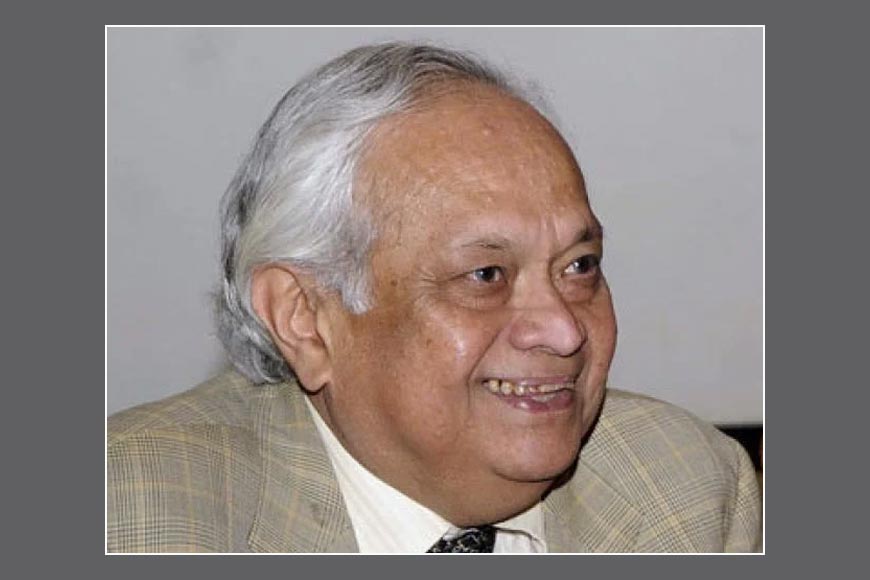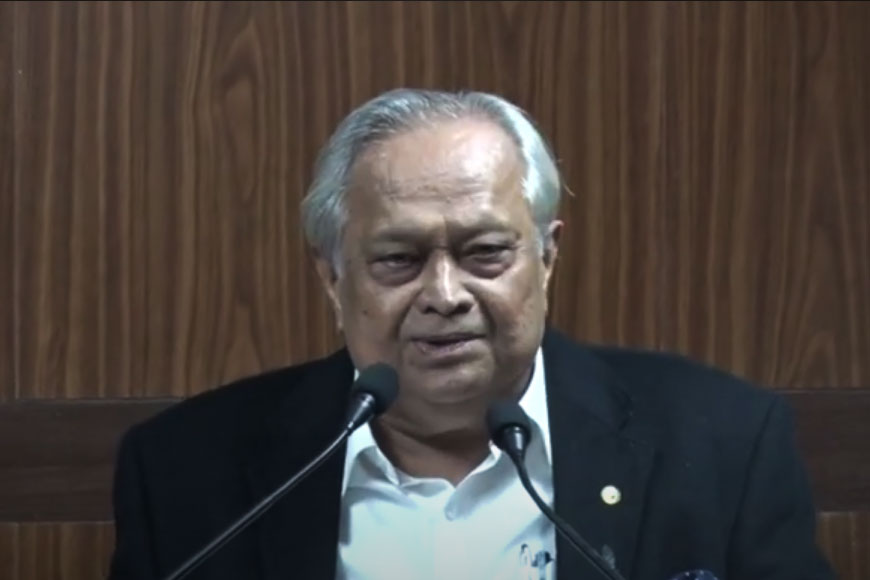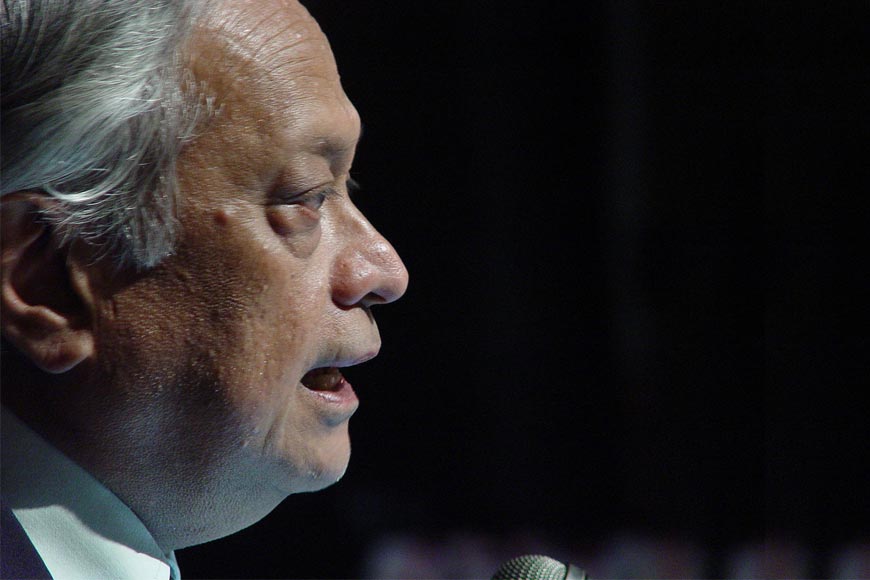Scientist Bikash Sinha, the man who dared to defy political clout for the cause of science - GetBengal story

Eminent Physicist Bikash Sinha
Is fundamental science a criminal luxury in India? A revolutionary question that scientist Bikash Sinha, former director of the Saha Institute of Nuclear Physics and Variable Energy Cyclotron Centre, dared to ask and voiced his concerns on how political leaders are deliberately spending less and less on science that could actually free a nation and society from the evils of superstition. Sinha is no more. He died today after suffering from age-related ailments. He was just 78, and though he received Padma Shri in 2001 and Padma Bhusan in 2010, Sinha always felt India needed to be more proactive in scientific research. The Hon'ble West Bengal Chief Minister, Mamata Banerjee condoled his demise, describing him as a talented nuclear physicist and illustrious son of Bengal. In a tweet, she wrote: "Saddened to know about the untimely demise of the great scientist Bikash Sinha." Sinha was the director of the Variable Energy Cyclotron Centre and the Saha Institute of Nuclear Physics and a fellow of the Indian National Science Academy. He was conferred by the West Bengal government the state's highest award 'Bangabibhushan' in 2022, and also the 'Rabindra Smriti Puraskar' in the same year.
Born in 1945, Sinha hails from the royal family of Kandi in Murshidabad. He studied Physics at Presidency College, graduating with high honours and then went to King’s College, Cambridge, for higher studies. He was the recipient of the S.N. Bose Birth Centenary Award of the Indian Science Congress Association in 1994. Sinha joined the Bhabha Atomic Research Centre, Mumbai, in 1976 after returning from England and was Director of the Variable Energy Cyclotron Centre. He was a Fellow of the prestigious Indian National Science Academy as recognition of his outstanding research in Physics (1989).He retired from service as the director of the Variable Energy Cyclotron Centre and the Saha Institute of Nuclear Physics in June 2009. Later, he joined as chairman of the board of governors, National Institute of Technology, Durgapur (NIT Duragpur). Sinha was nominated as a member of the Scientific Advisory Council to the Prime Minister on January 27, 2005. He was re-elected for the second time as a member of the Scientific Advisory Council to the Prime Minister in December 2009.

He was a member of the Visva-Bharati University's Academic Council since 2002 and a member of the Senate of the Indian Institute of Technology, Kharagpur. Bikash Sinha was the vice chancellor of West Bengal University of Technology in 2003. Sinha received multiple awards in his illustrious career. Like an honorary doctorate in physics from the National Academy of Sciences of Ukraine (2005), the Humboldt Research Award by the Alexander von Humboldt Foundation, Germany, in November 2005, the Meghnad Saha Memorial Lecture Award (2007) from The National Academy of Sciences, India, on August 28, 2007, and the prestigious "Bidhan Memorial Honor" on July 1, 2008 from the Bidhan Memorial Trust, Kolkata. Sinha was appointed a distinguished visiting scholar by Christ's College, Cambridge, in March 2009 and also elected as Fellow of the Institute of Physics, London, the same year.
Many asked if he could one day be eligible for the Nobel Prize, to which Sinha replied that awards were not important, what was most is how science could be used for human development. As he said once on the progress of science in India: "Nehru needs to be regarded as the true commander of modern Indian science. India’s economic condition was poor during his days, we had a very meagre foreign exchange reserve. But still, Nehru went ahead almost heroically with major programmes in the areas of atomic energy, the Council of Science and Industrial Research (CSIR). He even helped to build grand research institutions of fundamental science with his trusted friend Homi Bhabha — for example, the Tata Institute of Fundamental Research. The indefatigable Bhabha also built the Atomic Energy Research establishment, whose design and planning were greatly influenced by the Versailles Palace in France. Nehru and Bhabha together thought "big" and they created the unthinkable out of the thinkable, which brought India to the international stage. Even now, after so many years, these institutions are shining without any sign of obvious decay."
Sinha believed that in recent times, India had experienced a steady decline in meaningful research. Several changes in the government, in quick succession, didn’t allow any new ideas to flourish. He said that leaders like Rajiv Gandhi recognised the significance of the new discoveries, for example, high temperature superconductivity and nanomaterials. He was singularly responsible for bringing science to practical application, and thereby, modern technology was given the much-awaited push and drive.

Sinha did make some bold statements too in recent years for the cause of science. He said: "We have to be extremely alert about new developments in fundamental science taking place in other countries so that we do not miss out on the fantastic spinoffs. We have already missed out on the great electronic revolution; even now we are not in a position to own 100 percent indigenous computers, and, I suspect, the same story is being repeated in the case of nanotechnology, high-temperature superconductors, and other horizons of frontier science." For Sinha, the fundamentals of science were very important, and he felt India was hesitant, almost embarrassed, to talk about fundamental science as many felt it was a criminal luxury. "We have to realise in this context that technology without the driving force of fundamental science will stagnate in no time and turn irrelevant and redundant. If this happens, we have to revert back to the massive import of technology." The upright and outspoken scientist is no more and leaves thus a big void in the free-thinking scientific community of India.











